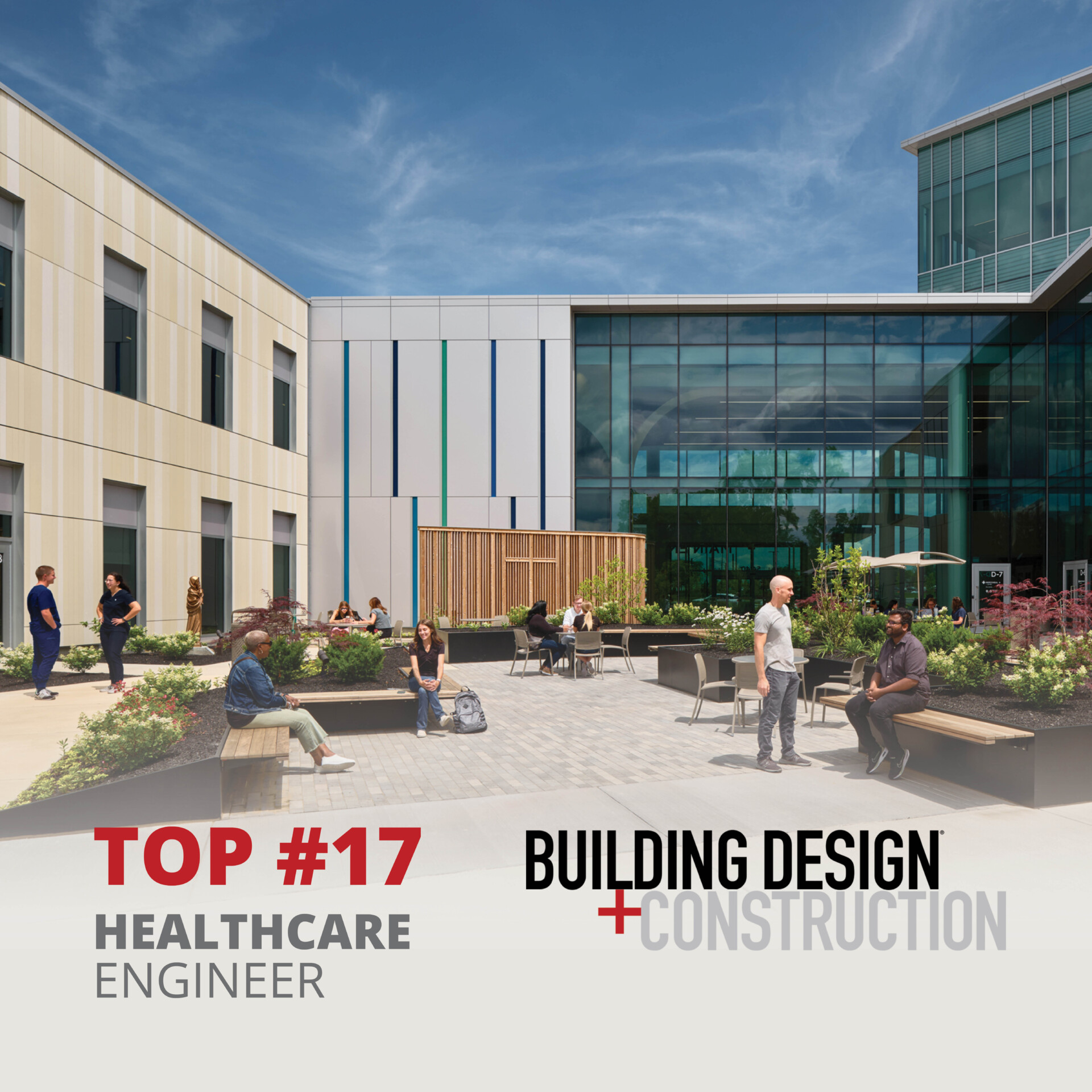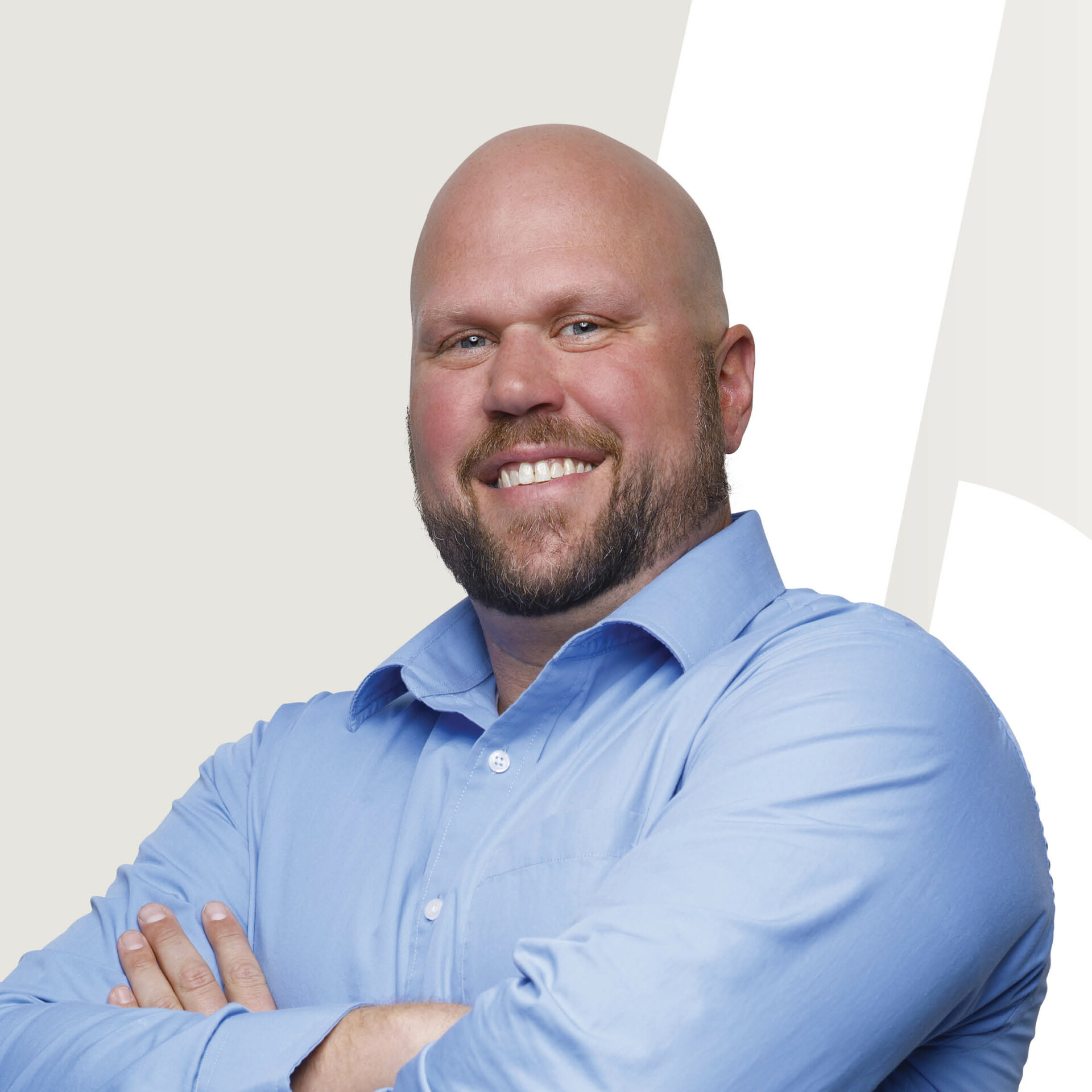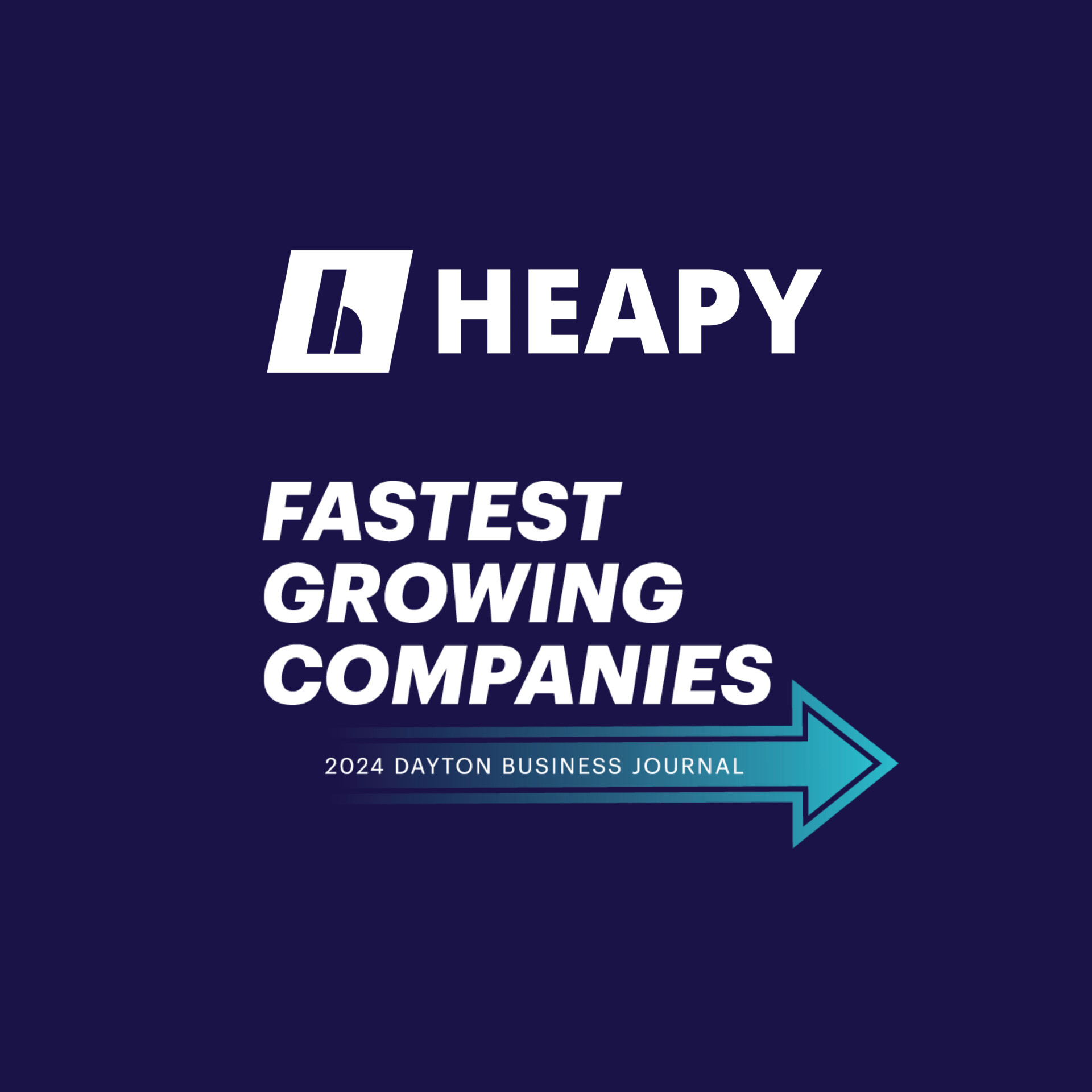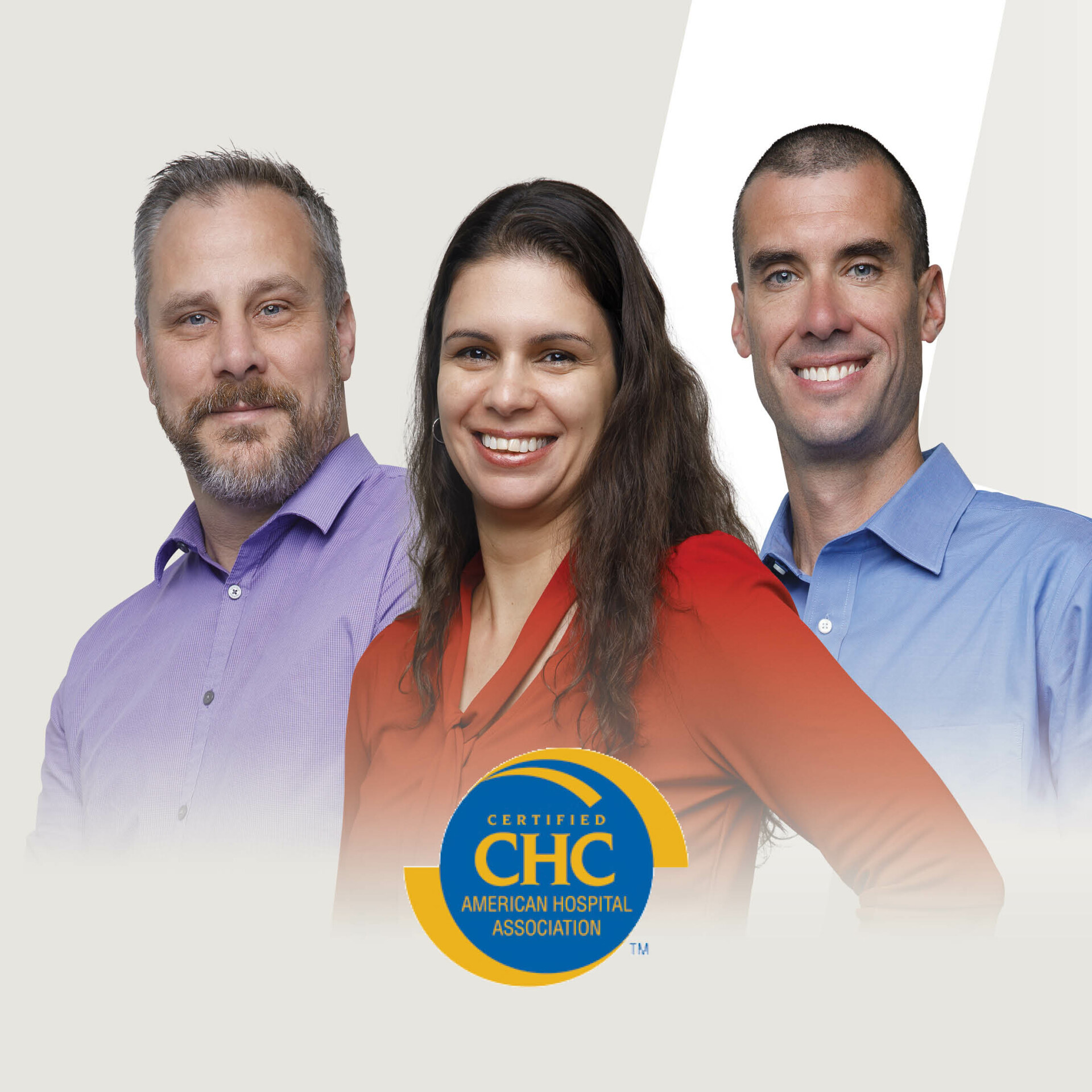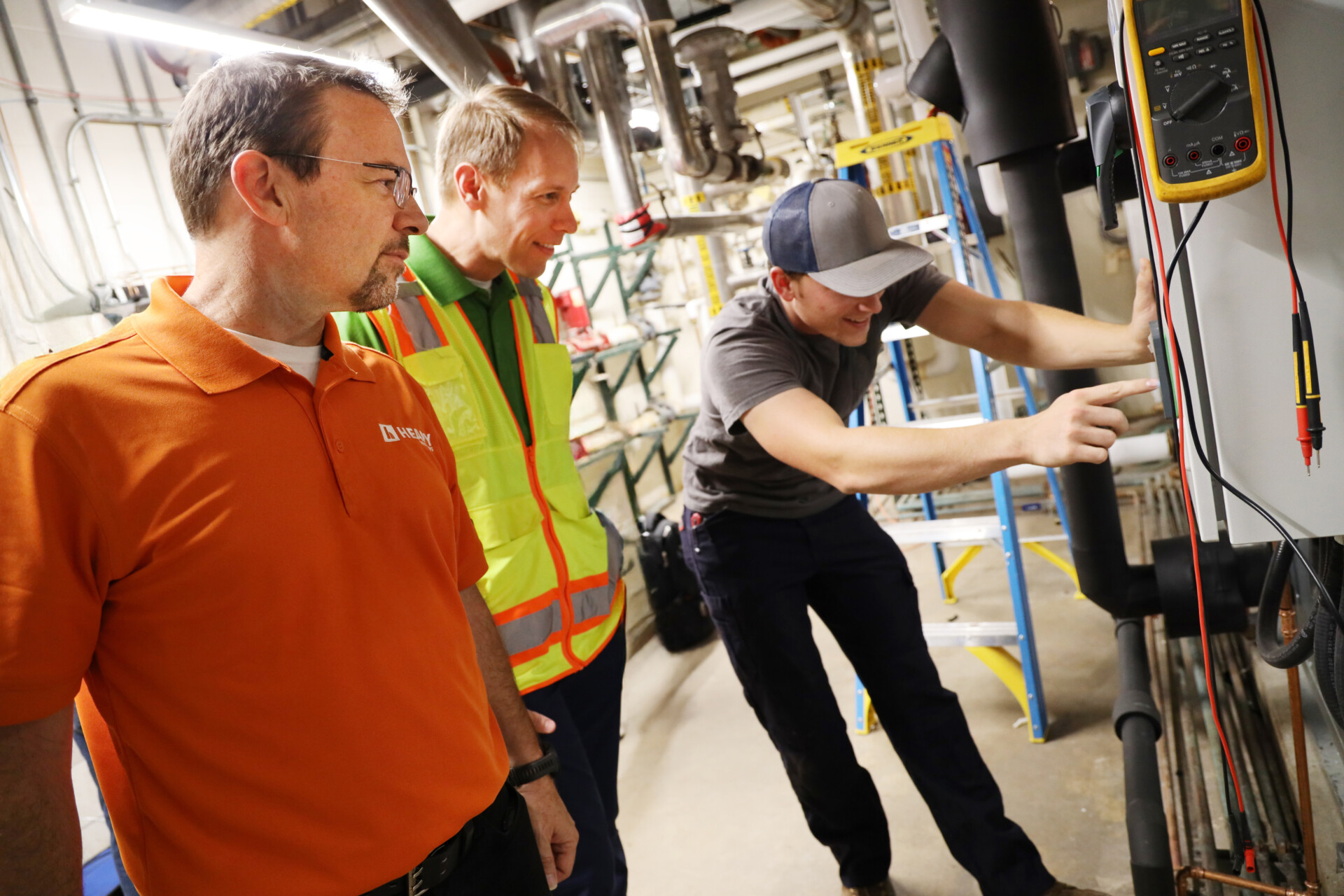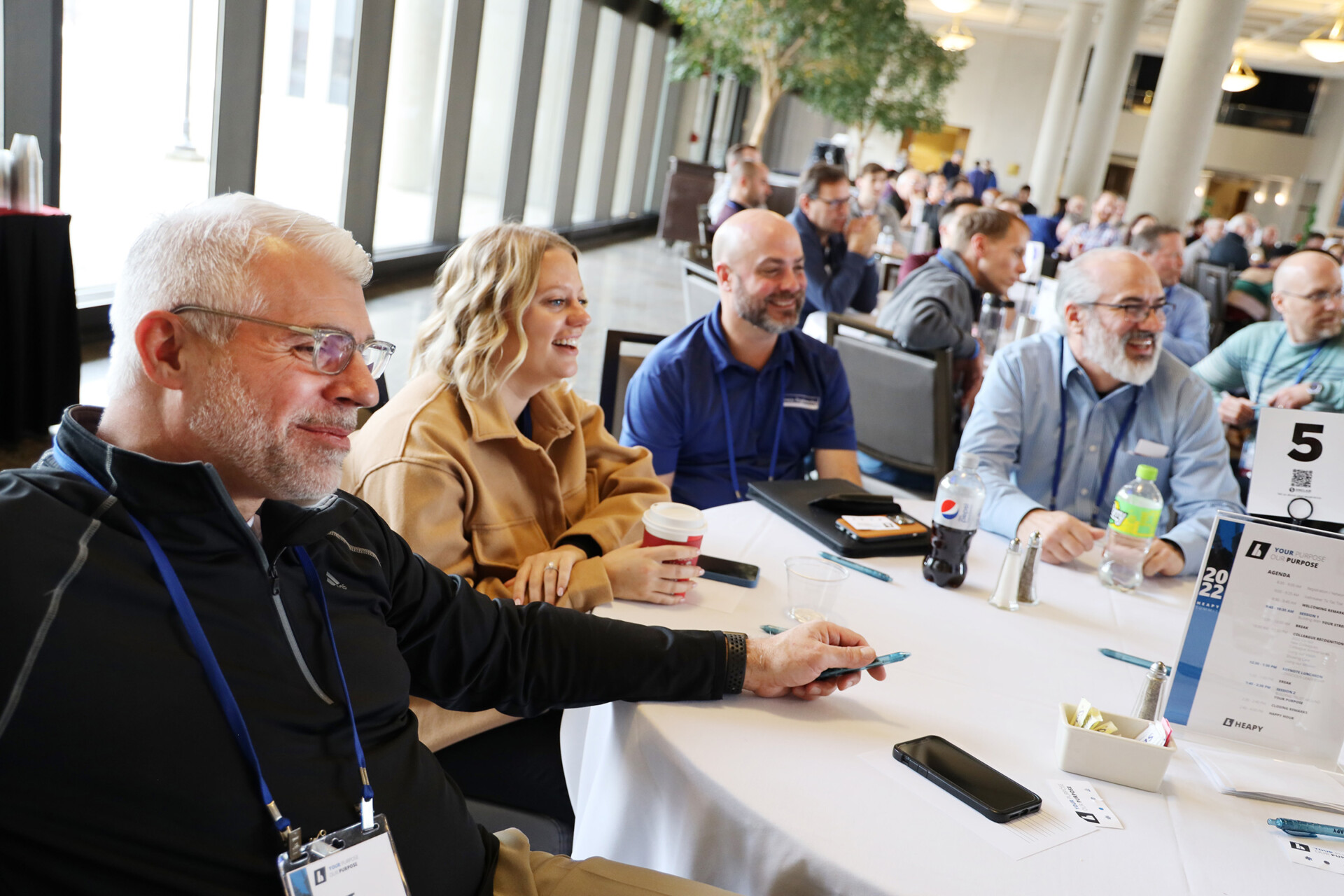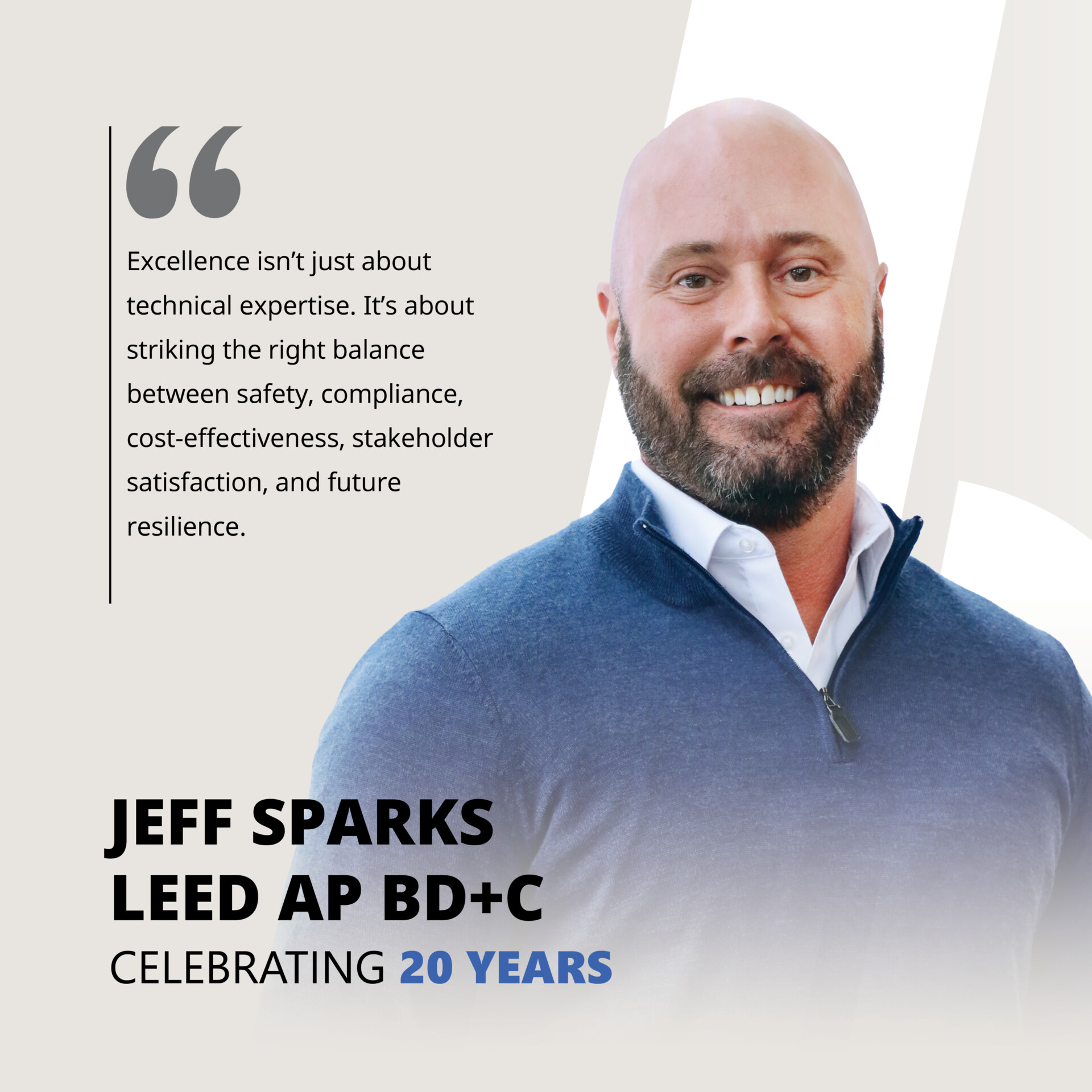
At HEAPY, careers aren’t just built, they’re sustained and celebrated. Few stories capture this better than Jeff Sparks, Project Manager. With 20 years of experience in the AEC industry, Jeff recently transitioned into project management and was drawn back to HEAPY by the exciting opportunities in Southwestern Ohio’s growing healthcare market. Today, he channels his deep technical background and fresh leadership perspective into guiding teams through complex, high-stakes healthcare projects that directly impact patient care and community health.
Jeff’s journey reflects what sets HEAPY apart: a culture that values expertise, collaboration, and long-term growth. His transition into project management, paired with two decades in the AEC industry, highlights both his personal growth and HEAPY’s commitment to advancing healthcare in Southwestern Ohio.
Now leading complex healthcare projects while supporting emerging professionals, Jeff offers a fresh perspective on what it takes to deliver lasting impact and excellence in project management.
Your path into engineering and project management wasn’t linear. What first brought you to HEAPY, and how did those early experiences shape your career direction?
Initially, I wanted to be an architect. I attended Miami Valley CTC in Dayton, Ohio, during my last two years of high school and studied Architectural Drafting. That led to a co-op position with a local casework design company. While working a second job, I met Mike Nauman, then one of the owners of Heapy Engineering. After hearing about my background, he offered me a full-time role as a CAD operator.
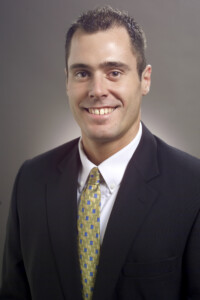 At 18, I started at HEAPY, working alongside graduate and senior engineers. Through project coordination, I saw firsthand the value engineering brings to design, and my career goals shifted from architecture to engineering. I pursued my degree in Electrical Engineering while working full-time, graduating in 2005. Along the way, I was fortunate to be mentored by Larry Cotterman, who helped nurture and expand my skill set.
At 18, I started at HEAPY, working alongside graduate and senior engineers. Through project coordination, I saw firsthand the value engineering brings to design, and my career goals shifted from architecture to engineering. I pursued my degree in Electrical Engineering while working full-time, graduating in 2005. Along the way, I was fortunate to be mentored by Larry Cotterman, who helped nurture and expand my skill set.
As a design engineer, I was gradually exposed to project management. I discovered I loved the people side of the work/owner satisfaction, team coordination, and business development, but at the time, no PM role was available. I left HEAPY for nearly seven years to grow those skills elsewhere. During that time, the firm evolved its business model into a “Colleagues First” culture, focused on helping people achieve their potential. With my healthcare experience and an internal opening, I had the opportunity to return. As Joe Ferdelman put it, it felt like “coming home.”
From your perspective, what defines excellence in healthcare project management?
Excellence in healthcare engineering project management goes far beyond finishing a project on time and on budget. At its core, it’s about making sure the work truly supports the healthcare environment and improves patient care.
For me, that means starting with a clear vision and aligning everyone around it. It takes strong collaboration and open communication, plus the ability to problem-solve when challenges inevitably come up. We must stay true to client standards, hold ourselves to rigorous quality checks, and always consider sustainability and long-term impact. Just as important is leading with empathy, supporting the team, understanding the client’s perspective, and keeping patient well-being at the center of every decision.
Excellence isn’t just about technical expertise. It’s about striking the right balance between safety, compliance, cost-effectiveness, stakeholder satisfaction, and future resilience. That requires not only a deep understanding of how healthcare really works but also the ability to lead a multidisciplinary team through complex, high-stakes projects.
Keeping teams focused on healthcare projects requires both structure and empathy. How do you balance leadership, collaboration, and accountability to drive successful outcomes?
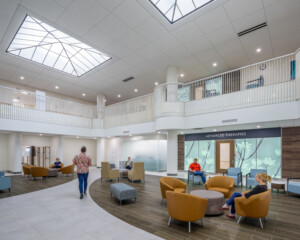 For me, it starts with setting a clear vision and making sure everyone understands how their work connects to the bigger goals of the project. From there, I rely on frequent, open communication, regular check-ins, collaborative discussions, and making sure information flows both ways.
For me, it starts with setting a clear vision and making sure everyone understands how their work connects to the bigger goals of the project. From there, I rely on frequent, open communication, regular check-ins, collaborative discussions, and making sure information flows both ways.
I also believe in data-driven decision-making, but equally in empowering the team. Rather than micromanaging, I encourage people to take ownership within their scope, and I make a point to celebrate wins—big or small—to keep morale high.
Finally, I view every project as an opportunity for continuous improvement. That means creating space for honest feedback from all parties and using it to refine both the process and the final product. This balance of structure, accountability, and empathy is what keeps teams engaged and projects on track.
How have client expectations in healthcare evolved during your time at HEAPY, and how has the firm anticipated and adapted to these changes?
Client expectations in healthcare have changed dramatically over the years, driven by technology, tighter regulations, and a stronger focus on patient-centered care. Projects today aren’t just about meeting codes or budgets; they’re about creating environments that improve outcomes and enhance the patient’s experience.
At HEAPY, we’ve stayed ahead of these shifts by being proactive and committed to continuous innovation. That mindset is a big reason why we’ve been recognized among the top 50 firms in healthcare design. We adapt early, listen closely to our clients, and make sure our solutions anticipate where healthcare is headed, not just where it is today.
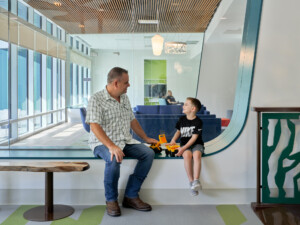 In your view, what differentiates HEAPY from other firms in successfully delivering healthcare projects?
In your view, what differentiates HEAPY from other firms in successfully delivering healthcare projects?
Without a doubt, it’s our revised quality control process. In healthcare, the margin of error is slim. Systems must work flawlessly for patient safety, regulatory compliance, and operational efficiency. Our QC approach ensures every project meets those high standards while also delivering on effectiveness and patient satisfaction. It’s what allows us to minimize risks, improve outcomes, and give clients confidence that their facilities will perform exactly as intended.
HEAPY is known for fostering long-term careers: what aspects of our culture have kept you engaged and motivated over the years?
As I mentioned earlier, when you’re happy with what you do and placed in a role where you can excel, success naturally follows. HEAPY has given me the opportunity to work in areas I enjoy and feel passionate about. That passion drives motivation, helps me stay positive, and encourages me to embrace the growth and challenges that come with work.
How do you mentor and support emerging professionals to help them grow in healthcare project management?
Mentoring emerging professionals is key to developing the next generation of leaders in this industry. In healthcare, success requires more than technical engineering skills, it also demands a deep understanding of people, emotions, communication, and team dynamics. My role is to guide them in balancing these elements so they can lead projects effectively and confidently.
